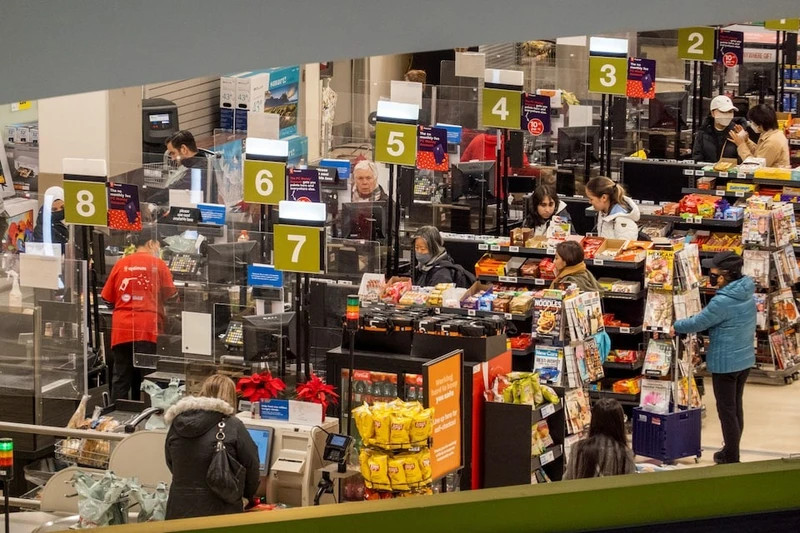According to a BoC survey, Canadian businesses and consumers are not very optimistic about the country’s economic situation and believe that the Canadian economy will grow slowly in 2025. Businesses reported below-average sales growth over the past 12 months.
Overall, businesses do not expect growth in the near future. Specifically, companies that rely on consumer discretionary spending saw the sharpest declines in sales in the past quarter, while about 30% of them expect sales to drop over the next year. According to the survey, 20% of companies still believe in a significant economic downturn while 51% of respondents said the Canadian economy will contract in the next 12 months.
Uncertainty about the economic outlook has led many Canadian consumers to cut back on spending. Household spending cuts are largely due to their allocation of a large portion of income to debt payment.
Consumption growth is forecast to recover slightly, rising to 2.25% by the end of 2025, but this outlook is also affected by a range of factors. Households with mortgages are still facing higher debt levels, although this will decrease as interest rates fall. They are also seeing rising incomes due to increasing investment rates. The combination of these factors makes it difficult to predict when consumer spending will recover.
Both Canadian consumers and businesses are shifting their focus to government spending and tax policies. The number of businesses that cited taxes and policies as their biggest concern has surged. Economic uncertainty and cost pressures are also top concerns.
Meanwhile, business investment remains at historic lows, with many companies seeing weak demand weighing on investment returns. However, the rate of businesses that will invest in machinery and equipment in the next 12 months has increased slightly. The inflation outlook remains high, leading to the prediction that price increases will remain above 4% over the next year.
The International Monetary Fund (IMF) recently upgraded its forecast for the Canadian economy, with growth of 1.3% expected this year and 2.4% next year, surpassing both the US and the UK. Accordingly, by 2025, Canada is anticipated to be the fastest growing economy among the G7 countries and other advanced economies. According to the BoC’s Monetary Policy Report, the country’s GDP will expand by 1.5% in the second half of this year, 2.1% in 2025, and 2.4% and 2026.
According to BoC Governor Tiff Macklem, although economic growth in Canada has picked up, it remains weak compared to population growth. The BoC’s latest interest rate cut is said to be in line with the expectations of Canadian economists and market. This also indicates that there will be more cuts in the future, because if inflation continues to decline as forecast, it is reasonable to expect the decreases in base interest rate. Whether the BoC continues to cut interest rates will depend on inflation data and signs of weakness in the labour market.
The economic picture has brightened, with the most positive growth outlook in the G7, but the recovery of the Canadian economy remains fragile. Canadian businesses and consumers are encountering many difficulties in the context of high interest rates and slow growth. The BoC’s policy of cutting interest rates is expected to help the Canadian economy “revive” in the second half of this year.
















